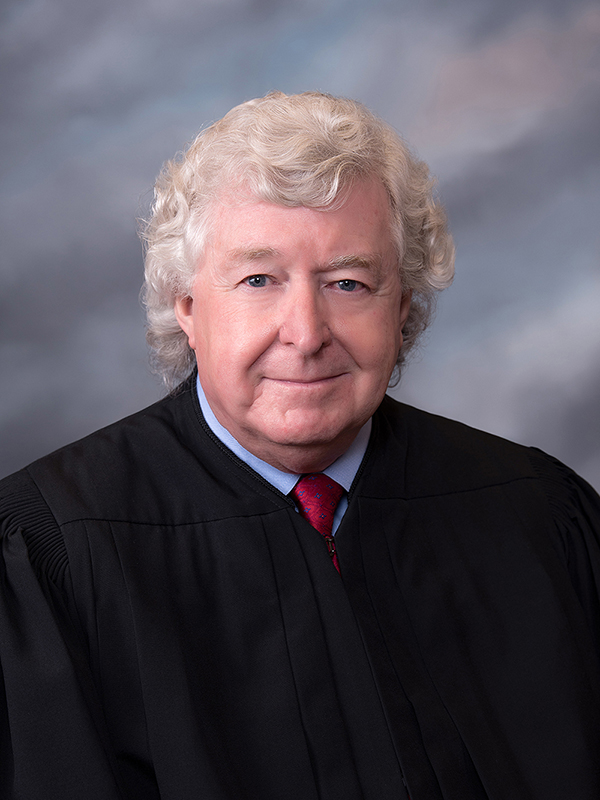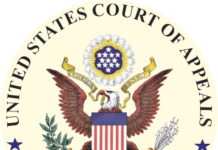During the course of the legal battle over voting restrictions put in place by the Kansas Legislature in 2021, Supreme Court Justice Dan Biles has recused himself from the proceedings as they played out.
Nine times since 2021, Biles either recused himself or didn’t participate in the case stemming from a legal challenge to a new law limiting how many ballots a third party could deliver to an election office and imposing new signature requirements for advanced ballots.
Biles also had recused himself from the companion case challenging an election law making it knowingly illegal for someone to impersonate an election official, which is now pending before the court as well.
But on Feb. 24, the day before a follow-up hearing before the Kansas Supreme Court, Biles did an about-face and decided to participate in the oral arguments where he was an active questioner during the hearing.
Now, Secretary of State Scott Schwab and Attorney General Kris Kobach have “reluctantly” and “repectfully” filed a motion – with the Supreme Court asking Biles to explain why he suddenly decided to participate in the case after recusing himself in the past.
They say Biles should explain his decision to reverse course and participate in the case, saying it puts public confidence in integrity and impartiality of the court at risk.
“Neither Justice Biles nor the court offered any explanation for the decision to rescind the recusal,” Schwab and Kobach say in their motion.
“Under both governing case law and the Code of Judicial Conduct, however, the litigants and the public were entitled to an explanation.
“Justice Biles’ re-entry into the case without providing any public rationale for why the basis for his disqualification no longer existed was improper, has the potential to compromise the public’s confidence in the integrity and impartiality of the Court…”
They said his decision to come back and participate in the case without explanation “creates at least an appearance of impropriety.”
They stressed that they are not suggesting Biles had any kind of bias in the case, but rather they are seeking an explanation about his decision to participate in the case after recusing himself.
“The relief that defendants request here is modest. They ask only that Justice Biles
explain on the record the basis for his original recusal and articulate what conditions have changed that would permit a reversal of that earlier decision.
“Defendants believe that either Justice Biles or the court has a legal duty to provide such an explanation.
“But whether legally mandated or not, defendants submit that providing this transparency is essential to ensuring the public’s confidence in the fairness, integrity, and impartiality of these proceedings.”
A court spokesperson couldn’t immediately respond to a question Tuesday afternoon.
Schwab and Kobach agreed that Biles wasn’t obligated to explain his recusal. However, they said that cannot be said for his decision to later participate in the case,
“Given that Justice Biles believed, over multiple years in this case, that he either harbored some type of conflict, or that his participation might implicate an appearance of impropriety, thereby necessitating his disqualification, it is hard to see how his decision to reverse that recusal does not require a public explanation…”
They said an explanation would be important in any case, “but it is particularly acute in a politically charged case such as this one, on a subject where a significant portion of the public is already skeptical of government institutions.”
Schwab and Kobach said they were unaware of any reported cases — not just in Kansas, but across the country — in which a judge has rescinded a prior disqualification without the record containing an explanation.
They noted that in Louisiana, for instance, once a trial judge recuses themselves from a
case, they may not take any further action in that case.
They cited a 2013 Kansas Supreme Court case where the court scrutinized a district judge’s decision to preside over a case after having previously disqualifying himself in a prior prosecution involving the same defendant.
Even though the district judge determined that circumstances had changed in a way that he didn’t need to recuse himself from the second case, the court disagreed and concluded the probability of bias was too high so that it violated the defendant’s rights.
Biles was appointed to the Kansas Supreme Court in 2009 by former Democratic Gov. Kathleen Sebelius.
A native of El Dorado, Biles received a journalism degree from Kansas State University and worked as an Associated Press reporter in Topeka while attending law school at Washburn University School of Law.
He was an assistant attorney general, attorney for the Kansas State Board of Education, general counsel for the Kansas Turnpike Authority, and worked in private practice before being appointed to the Supreme Court.
J. Christian Adams, president of the Public Interest Legal Foundation, recently wrote an opinion piece about Biles’ decision to participate in the case for the Hutchinson News.
Adams was a member of former President Donald Trump’s short-lived voter fraud commission and was sued in 2018 for inaccurately accusing hundreds of Virginians of illegally registering to vote. The lawsuit was ultimately settled and dismissed.
Adams compared Biles’ situation to former Chief Justice Lawton Nuss’ meeting with two Republican legislators in 2006 where they briefly discussed education funding with a lawsuit pending before the court.
“To avoid any appearance of impropriety, judges should offer the public an explanation when they un-recuse,” Adams wrote. “Did the problem that led to the recusal in the first place disappear, for instance?
“A problematic explanation would be his desire to break an apparent 3-3 split on the Supreme Court in the election case. Let’s hope Justice Biles has a different reason that doesn’t involve a thumb on the scales.”
The Public Interest Legal Foundation has filed many lawsuits against cities and states over election laws, including one challenging a North Dakota law accepting mail ballots received up to 13 days after the election.
The group filed an amicus brief in the Kansas case as well.
















